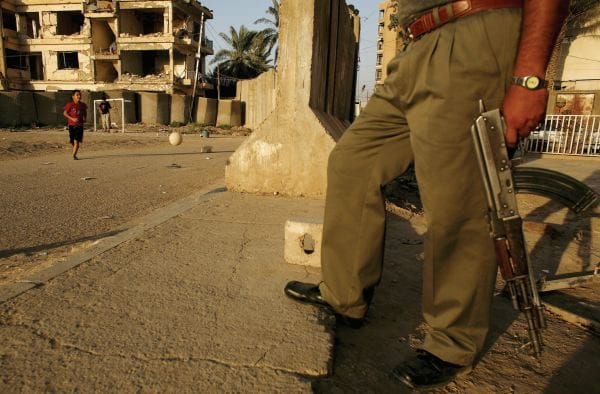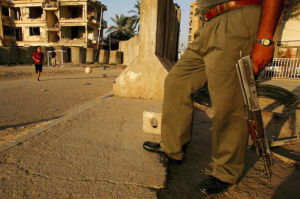Sticking Together in Times of Need – Visual Response
Aafreen Bhanji
Sticking Together in Times of Need
A time of struggle makes people work together. It helps them put their differences aside and come together to overcome the struggle. This helps them build strong relationships and aids individuals in overcoming their adversity with others. The photograph by AP-Bullit Marquez shows three children in the Philippines crossing a river on their way to school. This situation reminds me of a time when I witnessed something similar. When less fortunate individuals are in a situation where they have obstacles to cross, they will use what they have and support each other to overcome that obstacle, which will result in them finding inner happiness.
The visual shows how individuals can overcome obstacles if they have the support of others. There are three children on a raft floating across a river while going to school. They don’t look poor because their clothes are in good shape and they don’t look dirty. On the other hand, they are all trying to stay on this one raft so that no one falls off. The picture is in black and white, which symbolizes the feeling of struggle and discontent in oneself. The facial expressions of the children are not one of sadness, but one of happiness or gratitude. They are thankful that they are all together, even in a tough situation. The focal point of the visual is the three kids on the raft. The water and the bushes behind them are blurred giving the effect that the kids are the main focus of the visual. This symbolizes that the children don’t belong in society because they have have to cross a river to get to school; whereas, other kids probably don’t have to do that. The individuals in the photograph look like siblings. There are two boys and one girl. It is clearly shown that they care for each other and they take care of one another. This visual shows that even when individuals are in a time of despair, as long as they are together, they can work through and tackle the obstacle together. This is also evident in my own life.
This visual reminds me of the time when the Syrian refugees were going to Europe on boats. They probably did not have nice boats,so they piled so many people onto one raft until no more could fit, and sent them off to go there. They were in a time of despair and struggle, but they stuck together and made it to Europe. I agree there were some people who did not make it through, but all the refugees were together and I think that it made the journey that much easier. Just like the children in the photo, the refugees helped and cared for each other so that everyone could get the same outcome of coming to Europe. Even though they were struggling in their hometown, they stayed as one group and were happy that they were together. This shows that during a time of hopelessness, people can and are able to work together and take care of each other so that everyone can benefit equally. As long as they are together, they don’t have to worry about what is going on around them.
When underprivileged individuals are faced with an obstacle, then they will help each other and use what they have, resulting in them finding happiness. The children in the visual used a raft and helped each other in order to cross the river. The Syrian refugees used what they could find and helped people reach Canada. Both of these situations resulted in everyone in the group not thinking about what was happening around them, but the fact that they were all together and that they would make it to their destination. Difficult situations not only bring out the best in people, but it also helps individuals realize that when you work together, so many things are possible.





